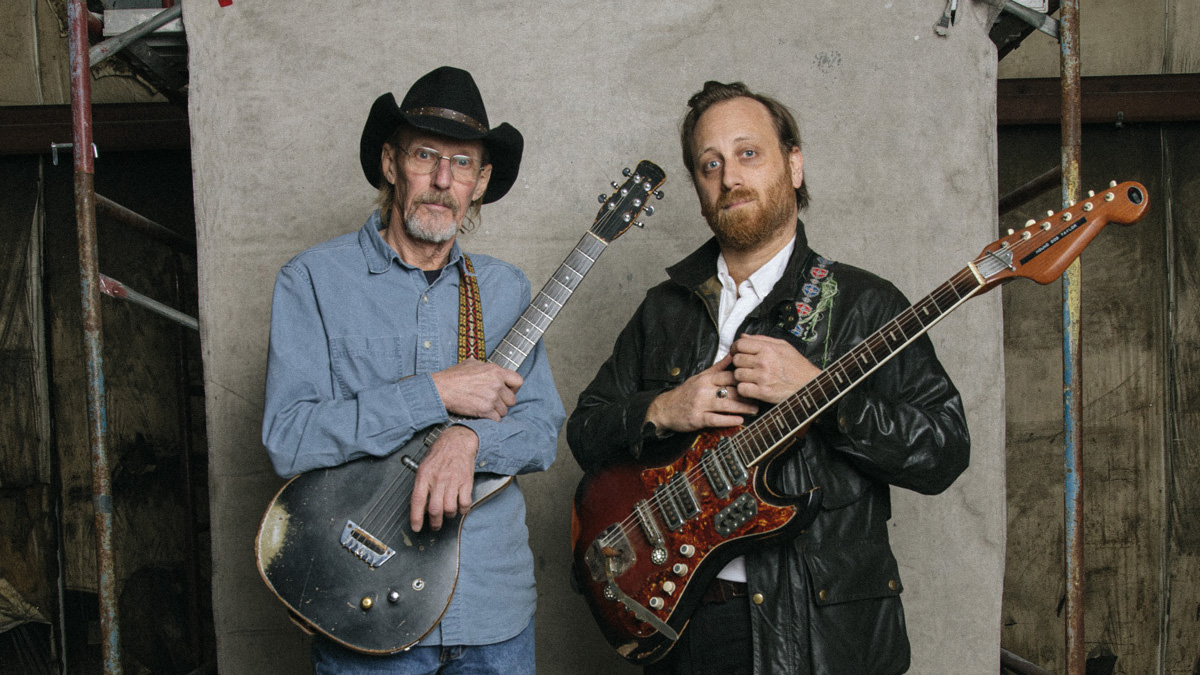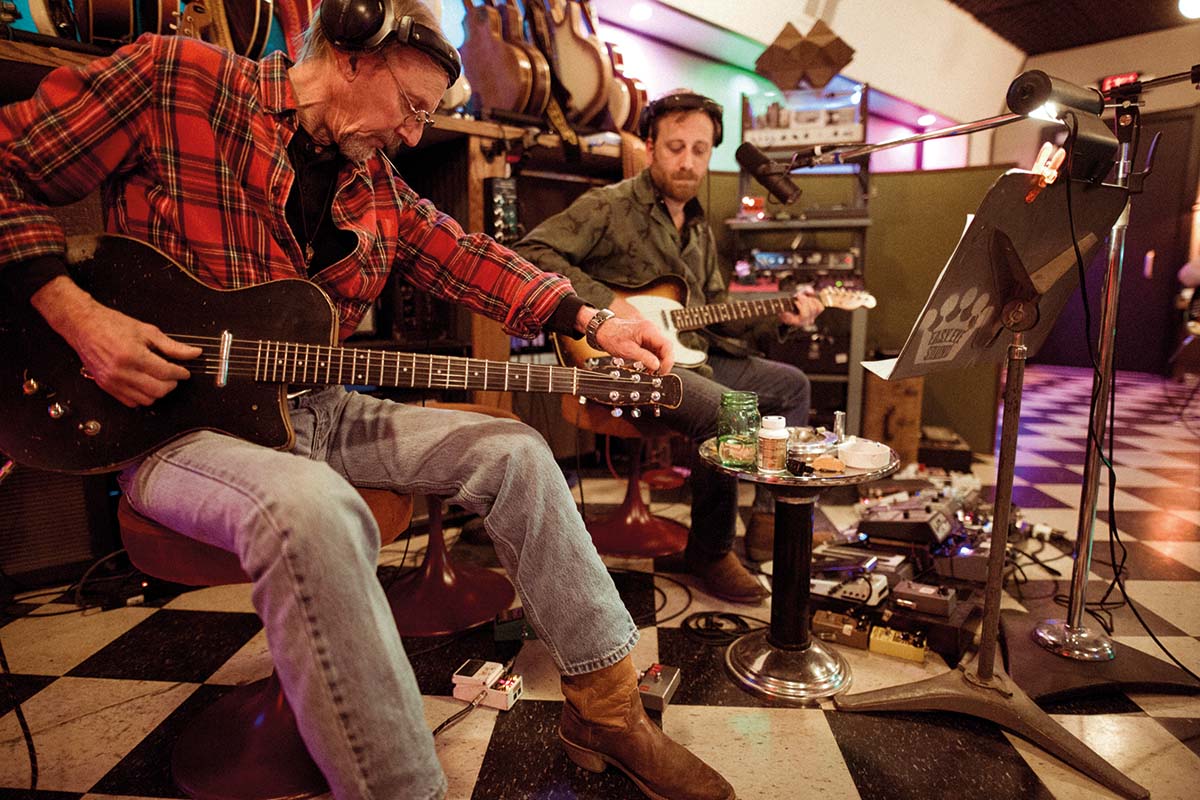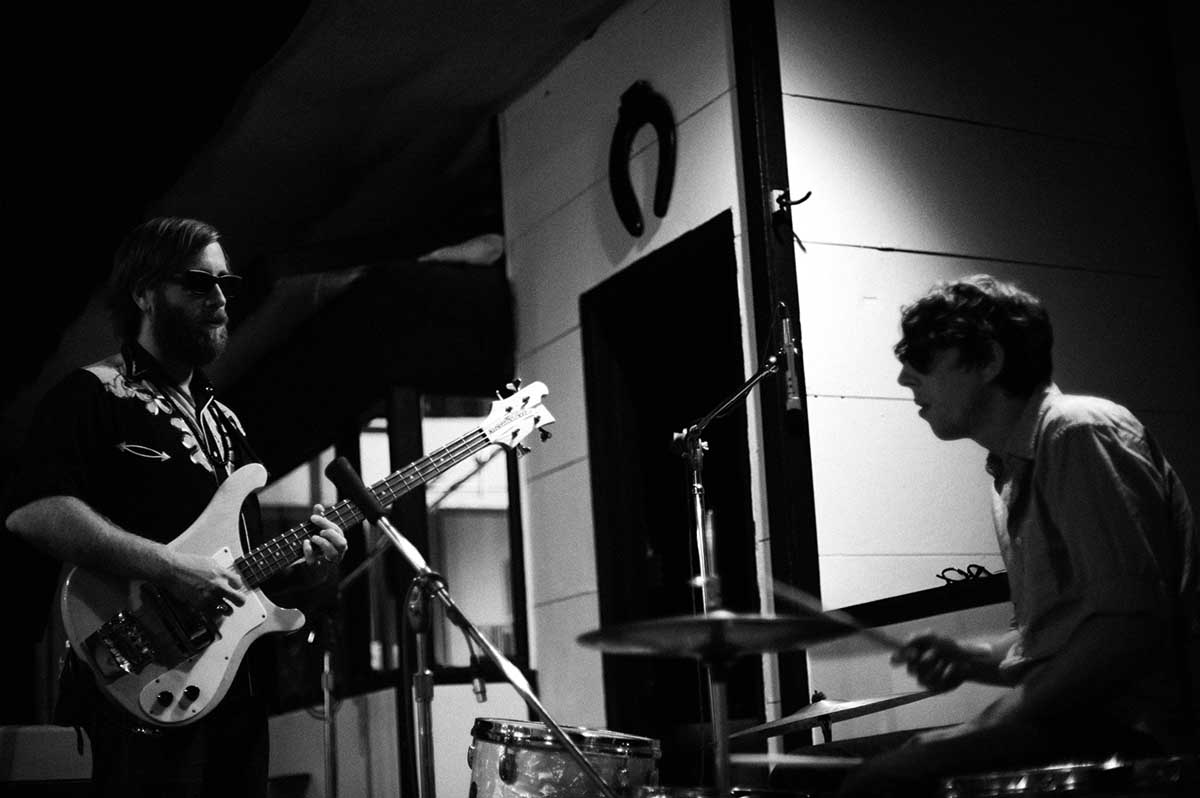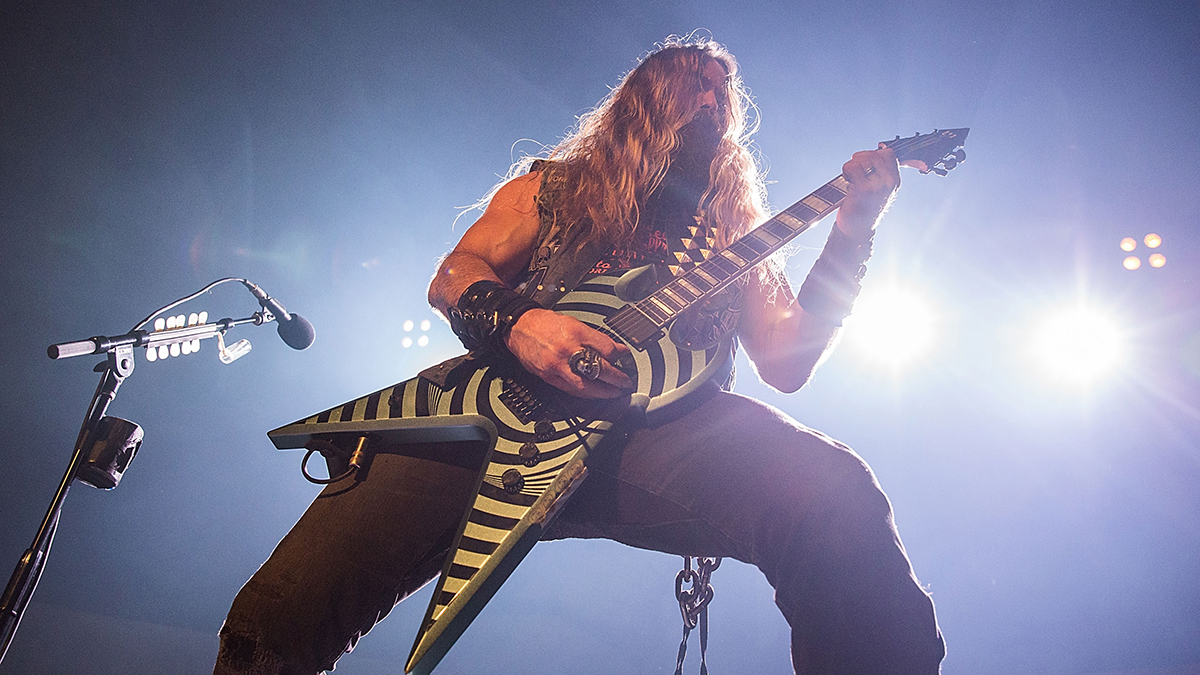Dan Auerbach: “That reckless abandon when we play was learned from people like Kenny Brown... that’s why we can go and improvise a record together“
Auerbach goes to the source of Mississippi hill country blues and enlists guitarist Kenny Brown, R.L. Burnside’s right-hand man, for The Black Keys’ new collection of blues standards

All the latest guitar news, interviews, lessons, reviews, deals and more, direct to your inbox!
You are now subscribed
Your newsletter sign-up was successful
It's one thing for an established rock band to make a back-to-basics album. But it’s quite another to go all the way back to the songbook and sidemen who inspired you in the first damn place.
For their 10th studio release, Delta Kream [Nonesuch], the Black Keys did just that, hosting a Hill Country blues party in honor of their departed heroes R.L. Burnside and Junior Kimbrough, with help from musicians who performed with them on classic albums and throughout their heyday.
The whole affair was partly an act of serendipity – guitarist Kenny Brown and bassist Eric Deaton were both in Nashville to back Robert Finley on a session at Easy Eye Sound, Auerbach’s studio near Nashville’s Music Row, in December 2019. However, just three weeks removed from the Black Keys’ tour in support of their previous album, Let’s Rock, Auerbach caught a vibe with Brown and Deaton and soon they were digging into songs he hadn’t played in decades.
“It was just so much fun that I had to call Pat [Carney, drummer], and I said, ‘Man, you gotta come over here and I’ll see if these guys can stay an extra day and you can just play some songs.’ And that’s what he did,” Auerbach says. “He showed up the next morning; we just started playing for fun and we cut this record in a day.”
It's hard to understate the impact Mississippi hill country blues had on Auerbach and Carney, and it’s fair to say the Black Keys wouldn’t exist without the songs on Delta Kream.
The music of Burnside, Kimbrough and Fred McDowell was the flashpoint for the grimy Rust Belt blues the duo recorded on early releases The Big Come Up [Alive, 2002] and Thickfreakness [Fat Possum, 2003].
But whereas they paid homage to Burnside and Kimbrough with a handful of covers on those records, as well as on the 2006 EP Chulahoma: The Songs of Junior Kimbrough [Fat Possum], the addition of Brown and Deaton on Delta Kream unlocked hill country secrets like the hypnotic groove of Going Down South and the locomotive Coal Black Mattie.
All the latest guitar news, interviews, lessons, reviews, deals and more, direct to your inbox!
They revisited Kimbrough’s Do the Rump, trading the lo-fi fuzz of their debut-album version for a slower, more confident and muscular rhythm with Brown’s unhinged slide attack and a fiery Auerbach solo. Auerbach first met Brown as a fan, when the Fat Possum Juke Joint Caravan tour stopped at the Euclid Tavern in Cleveland, Ohio, in the late Nineties.
“I was really lucky up in north-eastern Ohio; there was lots of great music that came through Cleveland,” he says. “I would get to see people like R.L. Burnside and Link Wray, and I saw Glenn Schwartz every week. I realized getting to see people in person was just what I loved.”

Those shows only drew him closer to the flame. When he was 18, he and his father took a trip to Mississippi to find the source of Auerbach’s obsession, and to hear “those guys [who] weren’t necessarily going to come to me.”
He found both heartbreak and elation – Junior Kimbrough was in bad health, but he watched his sons play his dark, often unstructured, fingerstyle country blues at his juke joint in rural Chulahoma. When they crossed the flat, alluvial Mississippi Delta to Greenville, they found an aging T-Model Ford and spent time with him, as well.
On Delta Kream, these experiences are full-frame as Brown wrings his opening slide licks on Crawling Kingsnake into feedback and Auerbach frets John Lee Hooker’s nimble riff. Recording live facing each other, the band found their way through muscle memory, intuition and the subtle cues of musicians steeped in a largely improvised tradition.
I love that particular type of music so much, that hill country blues. These guys really know that stuff and it’s just an absolute joy getting to hang out with those guys and play those songs
Most songs were first or second takes, with Auerbach and Brown swapping roles throughout as they worked to highlight the interplay between the instruments.
Their stylistic differences are apparent – the former is often more reserved than the latter on these tracks – but Tchad Blake’s mix posts Auerbach’s guitar mostly center-right while Brown is panned center-left, giving the effect of being in the room while they both find pockets of their own in the swinging grooves Carney and Deaton carve for them.
Auerbach recently talked with Guitar World about coming back to Mississippi hill country blues after two decades and how Delta Kream came to life.
Were the sessions for Delta Kream the first time you played with Kenny Brown?
“That was the first time I’d really played with him. I’d seen him so much; he’s so influential. Of course, any time I saw R.L. Burnside, Kenny was there by his side. Such a big part of those Junior Kimbrough and R.L. records that I just obsessed over. So I felt like I knew him, I felt like I’d played with him a million times because I sort of had, playing along with the records.”
Did he take on the same role that he played with R.L. when you played together?
“Yeah, the Kenny Brown role. [Laughs] Eric knows all those songs just about better than anybody and Kenny helped to invent the ones that we know and love, so it was just a real treat, because I love that particular type of music so much, that hill country blues. These guys really know that stuff and it’s just an absolute joy getting to hang out with those guys and play those songs with them.”

You made a pilgrimage to visit the blues artists of north Mississippi in the 1990s. What was that trip like?
“The first time that I went to Junior [Kimbrough]’s juke joint, that’s when I found out he was really sick and he lost a leg to diabetes, and he just hadn’t been playing. That was also the first time I spoke to Kinney Kimbrough [Junior’s son] and met Garry Burnside [R.L.’s son].
“They told me and my dad if we could loan them some money to get David Kimbrough out of jail, they could get him over to the club where we were at and they could play some Junior songs. So we gave him some money; I think it was like $24.
“Then David came in. Junior had a lot of kids, but [David] was by far the standout musician and he played his dad’s songs so well. He had a strong voice, like Junior had when he was young, and I got to hear them play those Junior songs in Junior’s juke joint, surrounded by all the dancers and drinking the corn liquor. They paid us back at the end of the night from beer money and I’ve been playing with Kinney ever since.”
Patrick is quoted as saying, “Kenny Brown brings an organized chaos.” What does that mean on this new record?
"Kenny knows there are parts you have to play and you can’t mess them up, but he also understands that you can’t play those parts the same way twice. Not supposed to. Every time he solos, it’s different. He just goes for it. That’s just how he is. I think Patrick describes his guitar playing as eccentric, and I wholeheartedly agree with that.”
What did playing with Kenny bring out of you? Did you adjust your role of what you normally play in the Black Keys?
“I think some of that spirit in the Black Keys, that reckless abandon when we play, that was learned from people like Kenny Brown. You know what I mean? So I think that’s why we can go and improvise a record together. I learned from watching him.”
Having those guys on the record is just a difference maker. I think for both Pat and me it made it more meaningful.
How did you come up with the song list for Delta Kream? Was it just people calling out different songs, like at a juke?
“Just right off the back of the hand, just thinking about the songs, and whatever popped to mind we would try it. It was funny how quickly [songs] came back. You’d say, 'What about this song? Start to pick at it a little bit and then, 'No, I think it goes like this. I think it does this here. Let’s give it a shot, and then we’d have the song in one or two takes. That’s how we made the record.”
On Louise it sounds like you’re doing a pretty close approximation of Fred McDowell’s fingerstyle playing and how you let certain open strings drone.
That’s definitely so hard to do. I used to try to figure it out, but that’s the thing with this record – this is stuff I used to try to figure out when I was 20, and I just haven’t played it since then. Those things are so ingrained in my brain, and Eric too, he knows all those songs by heart and then some.”

What are the main stylistic differences between the R.L. and Junior stuff – and Fred for that matter – in how they play?
“Well, R.L. is more part of a tradition. When you say hill country blues, I think R.L. is more part of that tradition. He comes out of Scotty McDowell and Wayne Burnett and people like that who are really rhythmic, with the open tuning. You’ve got that “whack” thing going on with the thumb, it’s very percussive.
Junior Kimbrough was his own thing, absolutely. He definitely was a product of the hill country and his sound represents it, but he is so unique that maybe they all sounded like him.”
You acquired Fred McDowell’s Gibson Trini Lopez a while back. Did that play a role in the mix of instruments you and Kenny played?
“Kenny did play it; I don’t remember which song. You know what guitar that I got recently also is Hound Dog Taylor’s Teisco [Kingston-branded SD-40]. Everybody played that one. Kenny Brown, we split them out and he played it some on the record.
“But Kenny had the Silvertone that I saw R.L. play every time I saw R.L. play, and it’s on the records that I love. Those are Kenny’s guitars. A black Strat that he always played. Those had a really amazing sound and I remember those things very vividly. It was really fun.”
How far out did you get with amps and other gear, or did you plug straight in?
“I had my tweed [Fender] Deluxe narrow panel and an [Ebo Customs] E-verb spring reverb. This guy in town [Eric Borash], in Nashville, makes this spring reverb that I really like. That’s about it. I’ve got a fuzz that I’ll have on sometimes, [an Analog.Man] germanium fuzz.
“I played my ’60 Tele most of the time. Kenny may have been playing a tweed Deluxe also. I’ve got two of them and I think he was playing one. He had a fuzz pedal that was turned all the way down, but still kind of dirty. He would use that for some solos with the slide. It’s such an awesome sound because he’s got the lipstick pickups with the slide and it’s just a very awesome, unique high end.”
I think that that bleed is a big part of the magic of some of the old classic recordings. Bleed can be your friend. Let it bleed.
You recorded live as a five-piece and some-times six-piece band with a percussionist and keys. How is the room at Easy Eye Sound set up? Were you all facing each other?
“That’s right. We have some tall baffles with glass in them around the drums, but it’s not enclosed; it’s open at the top, so it was bleeding everywhere. The percussion is sitting face to face with the drummer and then the bass player and me and Kenny were all in a circle. We could all see each other.”
What does that bleed do to the mix? What does it bring to the finished product?
“Here’s the thing: If you don’t fuck up, it’s amazing. If you mess up, it’s a nightmare because you can’t fix it. You just have to be cool with warts-and-all type of recording. I think that that bleed is a big part of the magic of some of the old classic recordings. Most people learn that eventually, that half of their favorite drum sound is bleeding from some other mic. Bleed can be your friend. Let it bleed.”
Why do you think it took so long for you and Patrick to get into the studio with guys from the hill country?
“I’m not really sure. That’s sort of what I was thinking when I was there doing it. You couldn’t have made this record 10 years ago. Somebody told me yesterday, 'This reminds me of old Black Keys.' I’m like, 'No, it doesn’t, because we weren’t that good.' I think it reminded them of the spirit. It’s the same spirit, but it’s a couple of decades later. Having those guys on the record is just a difference maker. I think for both Pat and me it made it more meaningful. That’s really the reason we were there.”
- Delta Kream is out now via Nonesuch Records.
Jim Beaugez has written about music for Rolling Stone, Smithsonian, Guitar World, Guitar Player and many other publications. He created My Life in Five Riffs, a multimedia documentary series for Guitar Player that traces contemporary artists back to their sources of inspiration, and previously spent a decade in the musical instruments industry.

